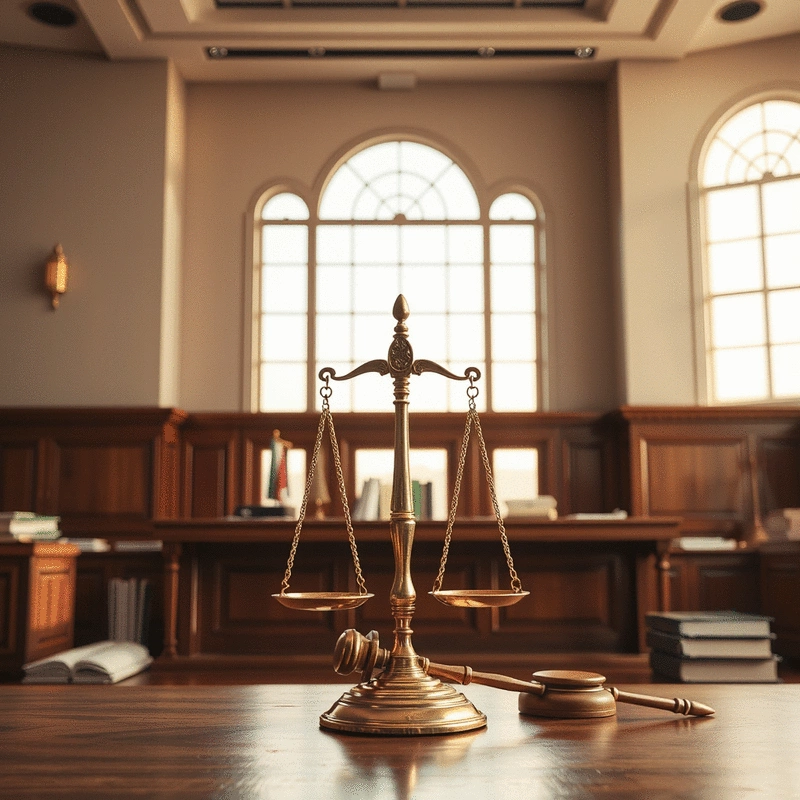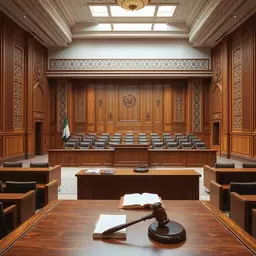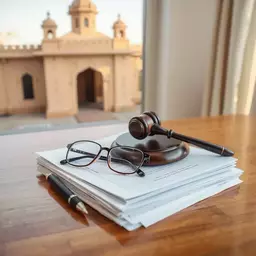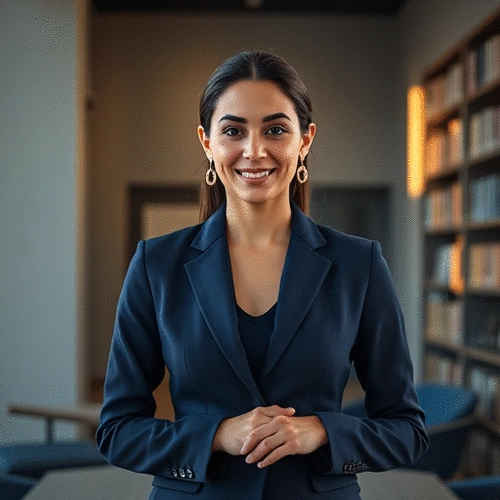Jury Decision Factors in UAE Trials

Understanding the legal landscape of the UAE is crucial for anyone facing judicial challenges within its borders. With its unique trial processes and legal frameworks, the UAE's criminal justice system requires careful navigation. This article provides essential insights that will empower you to effectively engage with the system and advocate for your rights.
What You Will Learn
- The UAE criminal justice system is primarily judge-based, which allows for quicker resolutions but places significant power in the hands of judges.
- Understanding the key stages of the criminal trial process, including pre-trial investigations, arraignment, trial, and sentencing, is essential for anyone involved in a case.
- The importance of legal representation cannot be understated, as judges' decisions often depend on the quality of arguments presented by defense lawyers.
- Familiarity with the UAE Penal Code and Criminal Procedure Law is critical, as these legal frameworks define rights, procedures, and potential penalties associated with criminal offenses.
- The Federal Supreme Court serves as the highest authority in the UAE, ensuring uniformity in legal interpretations and setting precedents for lower courts.
- Local judicial bodies like Dubai Courts and Abu Dhabi Judicial Department handle most criminal cases, each with its own jurisdictional rules and procedures.
- Key rights of defendants include the right to legal representation, guarantees for a fair trial, and access to judicial transparency throughout the trial process.
- Engaging with legal professionals for tailored guidance can significantly improve your understanding and ability to navigate the complexities of the UAE's criminal system.
Understanding the UAE Criminal Trial Processes
The key stages of criminal trials in the UAE are distinct and primarily judge-based, as illustrated below. To effectively navigate these stages, individuals must be aware of their rights in UAE arrests and ongoing proceedings.
Key Stages of Criminal Trials
- Pre-trial Investigations
- Arraignment
- Trial
- Sentencing
Judge-Based vs. Jury Trials
- Authority: Judges have the final say versus juries deliberating as a group.
- Transparency: Jury trials enhance public trust through citizen participation.
- Expertise: Judges bring extensive legal knowledge influencing outcomes.
UAE Penal Code Insights
- Definitions of various crimes.
- Specific rights of defendants.
- Procedural safeguards against wrongful convictions.
Role of the Federal Supreme Court
- Final arbiter of legal disputes.
- Reviews cases from lower courts.
- Ensures uniformity across the legal system.
Understanding the UAE Criminal Justice System
The UAE criminal justice system is a complex network designed to ensure justice while maintaining societal order. Understanding this system is crucial for anyone facing legal challenges in the UAE. Whether you've been accused of a crime or are seeking to help someone else, knowing how the system operates can significantly affect the outcomes. It’s essential to navigate this landscape with informed insights, which is why I’m here to guide you through the essentials.
This understanding begins with the criminal trial processes in the UAE, which include several unique features that differentiate them from other jurisdictions. For instance, the reliance on judges rather than juries is a primary aspect of the system. Diving deeper into the specifics will help you grasp the fundamentals of how justice is served in the UAE.
Overview of Criminal Trial Processes in the UAE
The criminal trial process in the UAE is primarily judge-based, meaning that cases are decided by a judge who interprets the law and the evidence presented. This approach can influence the speed and efficiency of trials, often leading to quicker resolutions than jury systems. However, it also places significant power in the hands of the judge, which can be both a benefit and a challenge, depending on the case specifics. Understanding these nuances is key to building a strong defense case.
In essence, the key stages of the criminal trial process in the UAE include:
- Pre-trial investigations
- Arraignment
- Trial
- Sentencing
Each of these stages has its own protocols and legal requirements, all of which are crucial to understand if you find yourself navigating this system.
Differences Between Judge-Based and Jury Trials
One significant difference between the UAE's system and those in many Western countries is the absence of jury trials. Instead, the judge plays a critical role in evaluating the evidence and making rulings. This means that:
- The judge's interpretation of the law is final.
- There’s generally less room for public influence in verdicts.
- Legal representation is crucial, as the judge's decision can hinge on the arguments presented by the lawyers.
This structure emphasizes the importance of choosing a qualified defense lawyer who can advocate effectively on your behalf. I often tell clients that having the right representation can make all the difference in these types of trials!
Key Legal Frameworks Guiding Criminal Trials
In the UAE, several legal frameworks guide criminal trials, with the primary legislation being the UAE Penal Code and Criminal Procedure Law. These laws set out the rights of the accused, procedural rules, and the parameters for evidence admissibility. Understanding these laws is vital for anyone involved in a criminal case.
Here are some key aspects of these legal frameworks:
- Definitions of various crimes and their corresponding penalties.
- Procedures for arrest and detention.
- Rights of defendants during the trial process.
Knowing your rights is essential, and this is where UAE Criminal Defense Insights can provide valuable guidance.
UAE Penal Code and Criminal Procedure Law
The UAE Penal Code outlines specific offenses and penalties, while the Criminal Procedure Law details the procedures courts must follow in criminal matters. Together, these laws form the backbone of the judicial system, ensuring that rules are applied consistently across cases. For detailed insights into specific cases, one might refer to analyzing criminal defense cases in UAE.
Key features include:
- Classification of offenses (felonies, misdemeanors, etc.)
- Specific rights for defendants, including the right to a fair trial.
- Procedural safeguards to prevent wrongful convictions.
Understanding these elements is a powerful first step in navigating the legal landscape of the UAE. My goal is to empower you with this knowledge, so you can make informed decisions in times of need.
Structure and Hierarchy of the UAE Courts
The structure of the UAE courts is organized into a hierarchy that serves to facilitate the administration of justice. Knowing the roles of different courts can help individuals understand where their cases will be heard and how the appeals process works. At the top of this hierarchy is the Federal Supreme Court, followed by various local judicial bodies.
Each level of the court system plays a specific role in handling different types of cases. Understanding this structure can provide clarity and direction, especially when facing legal challenges. Let’s break it down further!
Federal Supreme Court and Its Role
The Federal Supreme Court is the highest court in the UAE and serves as the final arbiter of legal disputes. Its main responsibilities include reviewing cases from lower courts and interpreting laws to ensure they align with the UAE Constitution. This court also plays a critical role in maintaining the unity of the federal legal system.
Some of its key functions are:
- Setting legal precedents for future cases.
- Reviewing and interpreting laws.
- Ensuring uniformity across the legal system.
Understanding the role of the Federal Supreme Court is essential, especially if your case reaches this level of the judiciary!
Local Judicial Bodies: Dubai Courts and Abu Dhabi Judicial Department
In addition to the Federal Supreme Court, the UAE has local judicial bodies, notably the Dubai Courts and the Abu Dhabi Judicial Department. These courts handle the majority of criminal cases within their jurisdictions and have their own administrative structures and procedures.
Key features of these local courts include:
- Jurisdiction over specific types of cases.
- Implementation of local laws and regulations.
- Accessibility for residents and expatriates.
Familiarity with these local structures can empower you to navigate your case more effectively, ensuring that you understand where to seek justice.
Quick Summary
Here's a brief recap of the key points discussed so far:
- The UAE criminal justice system is primarily judge-based, emphasizing the importance of legal representation.
- Key stages of the criminal trial process include pre-trial investigations, arraignment, trial, and sentencing.
- Understanding the legal frameworks, including the UAE Penal Code and Criminal Procedure Law, is vital for navigating legal challenges.
Frequently Asked Questions About the UAE Criminal Justice System
Below are some common questions regarding the UAE's criminal justice system, designed to provide clarity on key aspects discussed in this article.
- Q: What is the primary difference between the UAE criminal justice system and many Western systems?
- A: The UAE system is primarily judge-based, meaning cases are decided by a judge, whereas many Western systems utilize jury trials where a group of citizens determines the verdict.
- Q: What are the key stages of a criminal trial in the UAE?
- A: The key stages include pre-trial investigations, arraignment, trial, and sentencing.
- Q: What legal frameworks guide criminal trials in the UAE?
- A: The primary legal frameworks are the UAE Penal Code, which defines crimes and penalties, and the Criminal Procedure Law, which outlines procedural rules and defendant rights.
- Q: What is the role of the Federal Supreme Court?
- A: The Federal Supreme Court is the highest court in the UAE, responsible for reviewing cases from lower courts, interpreting laws, and ensuring uniformity across the legal system.
- Q: Why is legal representation important in the UAE criminal justice system?
- A: Legal representation is crucial because judges' decisions often hinge on the quality of arguments presented by defense lawyers, especially in a judge-based system.
Summary of Key Insights on Judicial Decision Factors
As we conclude our exploration of the judicial decision factors in the UAE, it's essential to grasp the unique aspects that shape the legal landscape. The differences between judge-based decisions and jury systems offer a fascinating perspective on how justice is administered. Understanding these nuances can empower individuals facing legal challenges, helping them navigate the complexities of the UAE criminal trials effectively.
One significant takeaway is that the UAE relies primarily on judge-based decisions. This contrasts sharply with jurisdictions that employ jury systems. In judge-based trials, the judge's expertise is crucial in interpreting the law and ensuring fair outcomes. However, this approach doesn't diminish the importance of public perception and cultural influences, which can also play a vital role in decision-making.
Contrasting UAE's Judge-Based Decisions with Jury Systems
To better understand the implications of judge-based versus jury systems, let's break down some key differences:
- Decision-Making Authority: In the UAE, judges have the final say in verdicts, while jury systems allow a group of peers to deliberate collectively.
- Transparency and Public Involvement: Jury trials often provide more transparency, as citizens actively participate in the legal process, enhancing public trust.
- Legal Expertise: Judges in the UAE bring extensive legal knowledge to their decisions, potentially leading to more informed outcomes in complex cases.
This juxtaposition highlights valuable lessons from global jury trials. We can learn the importance of community engagement in fostering trust in the justice system. The inclusion of diverse perspectives, as seen in jury systems, can enhance decision-making and ensure that justice is not only served but is also perceived as fair.
Understanding the Differences Between Jurisdictional Practices
Every legal system has its own set of practices that govern how justice is delivered. In the UAE, the absence of jury trials means that judicial decisions rely heavily on judges' interpretations of the law. This can streamline processes but raises questions about accountability. By examining other legal systems, we can appreciate the strengths and weaknesses of the UAE's approach. For those in Dubai, understanding navigating criminal cases in Dubai specifically can be very beneficial.
What Can Be Learned from Global Jury Trials?
Global jury trials present several insightful practices that the UAE can consider:
- **Public Participation:** Engaging citizens in the justice process fosters community trust.
- **Diverse Perspectives:** Juries bring varied viewpoints that can lead to more balanced verdicts.
- **Accountability:** Jury trials help ensure that decisions reflect societal values and norms.
Overall, these elements can inspire enhancements in the UAE's judicial processes, promoting a more inclusive approach to justice.
Final Thoughts on Navigating UAE Criminal Trials
Understanding the legal framework and your rights is crucial when navigating criminal trials in the UAE. Knowledge is power, and being informed can significantly impact the outcomes of your legal challenges. It's wise to consult with experienced legal professionals who can guide you through the intricacies of the system.
As someone deeply invested in empowering individuals, I encourage you to seek advice and ask questions! Engaging with professionals can demystify the complexities of criminal trials, ensuring you are well-prepared and confident.
Importance of Understanding Legal Framework and Rights
Being aware of your legal rights is vital. Here are a few key rights that every accused individual should know:
- **Right to Legal Representation:** You have the right to an attorney who can advocate for you.
- **Fair Trial Guarantees:** You are entitled to a fair trial, free from bias or undue influence.
- **Judicial Transparency:** You should have access to information regarding the proceedings and the legal processes involved.
These rights form the backbone of your defense and must be upheld throughout the criminal trial. For further guidance on how to assert your rights in UAE court, consult with legal experts.
Encouragement to Engage with Legal Professionals for Guidance
In the ever-evolving landscape of the UAE legal system, having a knowledgeable ally can make a world of difference. Don’t hesitate to connect with legal experts who can provide tailored advice based on your situation. Remember, being proactive in seeking guidance can lead to better outcomes.
Impact of Media Influence on Public Opinion and Justice
The media plays a significant role in shaping public perception of justice. In the UAE, media coverage can influence how cases are viewed, impacting the broader societal understanding of legal outcomes. By staying informed and engaged, we can contribute to a more nuanced discourse around justice and fairness in our community.
As we move forward, let's continue to engage in discussions about our rights and the justice system, fostering a culture of informed citizenship in the UAE.
Recap of Key Points
Here is a quick recap of the important points discussed in the article:
- The UAE criminal justice system is primarily judge-based, with judges making final decisions rather than juries.
- Key stages of the criminal trial process in the UAE include pre-trial investigations, arraignment, trial, and sentencing.
- Understanding the UAE Penal Code and Criminal Procedure Law is crucial for anyone involved in a criminal case, as they outline the rights of the accused and procedural rules.
- The Federal Supreme Court is the highest court in the UAE, responsible for reviewing cases from lower courts and ensuring legal uniformity.
- Local judicial bodies, such as Dubai Courts and Abu Dhabi Judicial Department, handle the majority of criminal cases and implement local laws.
- Legal representation is essential in the UAE, as the judge’s decisions can heavily depend on the arguments presented by lawyers.
- It’s important for individuals to be aware of their legal rights, including the right to legal representation and fair trial guarantees.
- Engaging with legal professionals can provide valuable guidance and improve outcomes in navigating the complexities of the UAE criminal justice system.
Popular Posts
 Understanding the intricacies of the criminal defense trial in the UAE can significantly impact your
Understanding the intricacies of the criminal defense trial in the UAE can significantly impact your
 Understanding the complexities of the legal system can be daunting, especially when facing criminal
Understanding the complexities of the legal system can be daunting, especially when facing criminal
 Understanding your legal rights is not just important; it's essential for anyone navigating the comp
Understanding your legal rights is not just important; it's essential for anyone navigating the comp
 As financial crimes continue to evolve, understanding their implications is crucial for navigating t
As financial crimes continue to evolve, understanding their implications is crucial for navigating t
